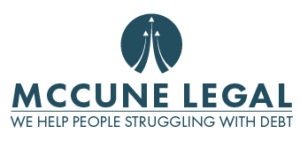Chapter 13 Bankruptcy
What is Chapter 13?

Basically, Chapter 13 is a repayment plan of 3-5 years. A huge misunderstanding is that you must pay all your debts through Chapter 13. That is just not true! There are Chapter 13 cases where the debtor pays 100% of all timely-filed and allowed claims, but those are the exceptions. Most Chapter 13 cases have a very small repayment to unsecured creditors.
Every person we work with is important to us.
As a lawyer who practices consumer bankruptcy, I love Chapter 13. It can provide incredible relief to good people who are struggling with debt, while at the same time protecting their assets (whether exempt or not).
Why File Chapter 13 instead of Chapter 7?
There are many good reasons why Chapter 13 will make more sense for a debtor than a Chapter 7. You might not be eligible for Chapter 7 based on several reasons such as a prior Chapter 7 in the last 8 years or if your income is above certain levels.
Chapter 13 Helps You:
- Stop a foreclosure and cure home arrears
- Pay off priority taxes through the plan
- Lower your car payment and interest rate
- Protect non-exempt assets
- Strip off a 2nd mortgage
- Extended protection from student loans
- And other reasons we’d be happy to explain!
There can be a lot to fight about during the plan confirmation process which is why you need to have a high quality, experienced bankruptcy attorney on your side.
What happens when I file Chapter 13?
The forms for Chapter 13 are very similar to the forms for a Chapter 7 but the main difference is that in Chapter 13 the debtor must also file a “Plan.” The early goal of Chapter13 is to get this plan “confirmed” by the Court (which really just means approved by the bankruptcy judge). There may be objections from creditors and/or the Chapter 13 Trustee that need to be resolved before the plan can be confirmed. The Bankruptcy Code has very specific requirements that the plan must meet. These requirements mandate that the plan treat certain creditors in a certain way. The confirmation process is typically 3-5 months after the case is filed. It will usually take several plans before a plan gets final confirmation. Contested matters can include: valuation of certain assets, disposable income, treatment of certain claims in the plan and other issues (each case is unique which is why it’s so important to get a good lawyer).
Just like in Chapter 7, a Chapter 13 filing puts into effect the Automatic Stay which protects the debtor from most creditor action. The Chapter 13 Plan will require that the debtor make monthly payments to the Chapter 13 Trustee. The first payment is due 30 days after the case is filed. The Trustee is placed in charge of distributing those funds to all relevant creditors, depending on how the plan treats them. The Trustee doesn’t begin to pay creditors pursuant to the plan until the plan is confirmed.
There’s a creditor meeting in Chapter 13 just like in Chapter 7. It also occurs about a month after the case is filed. Shortly after the case is filed the Bankruptcy Clerk will send out the 341 creditor meeting notice. This notice will also have the deadline for creditors to file claims, the deadline to object to exemptions and the discharge and it will also have the date for the first confirmation hearing and the deadline to object to plan confirmation.
There’s a lot going on behind in the scenes in a Chapter 13 case. The debtor needs to provide the Trustees with a lot of documentation prior to the hearing. The debtor also needs to be keeping a close eye on the claims filed in the case. The debtor may want to object to certain claims or in other cases the debtor may actually want to file a claim on behalf of a creditor. For non-governmental units, the deadline to file a claim is 70 days after the case is filed.
Getting the plan confirmed to the best terms possible for the debtor is the job of the debtor’s attorney. That’s what we do. What this really means is paying as little as possible into the plan to get it confirmed. However, there are competing interests: the Trustee and various creditors will typically want the debtor to pay as much as possible into the plan before the plan is confirmed. This is the back and forth of the confirmation process that can take several months and several plans to complete. Once the plan is confirmed, the debtor and the creditors are now bound by the terms of the plan. I like to call this a light at the end of the tunnel. If you honor the terms of the plan, you get to the light (which is the discharge). That’s how you get a discharge in a Chapter 13… you complete the plan. Again, the plan payment period can last from 3-5 years. Getting the plan confirmed is a huge deal because now it’s crystal clear what needs to be done by the debtor to get the discharge and properly finish out the bankruptcy.
Complete the plan, get the discharge.

